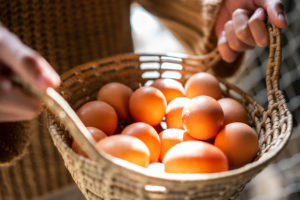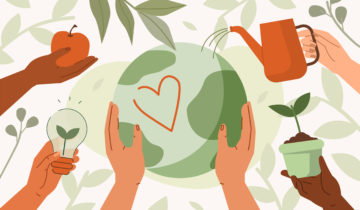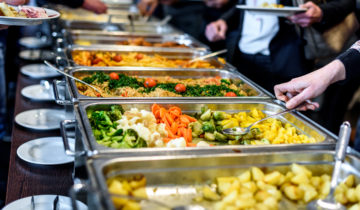In their daily purchases, consumers are becoming more and more mindful of selecting animal products from free-range farms that provide conditions that are respectful of the animals’ natural behaviours and needs. The results of a Eurobarometer survey initiated by the European Commission show that Europeans place great importance on animal welfare.
– 94% say it is important to protect the welfare of farm animals
– 87% believe informational campaigns on animal welfare have positive effects on children’s and young adults’ attitudes towards animals
– 89% of survey respondents think there should be a European law compelling anyone who uses animals for commercial purposes to take good care of them
– 52% look for labels identifying such products when grocery shopping
– 59% of Europeans are prepared to pay more for products from production systems that respect animal welfare, and of those, 35% are willing to pay up to 5% more, and 16% are prepared to pay 6-10% more (especially in Sweden, Luxembourg and the Netherlands).
In France, an IFOP study noted that 92% of French people think animal welfare is important, and 71% of French people ages 18 to 24 consider it to be very important.
These figures confirm the fact that animal welfare has become a societal concern that has only increased with the pandemic. On World Animal Day in October 2020, over 60 international animal protection associations released a joint declaration entitled “One Welfare, One Health”, that clearly stated their position: to preserve human health, we need to focus on animal and environmental health.
Sourcing that takes animal welfare into account
Still, this major shift towards animal welfare has not yet been sufficiently taken into account in food away from home. Institutional catering diners of all ages would be very interested in this though. As for restaurateurs, in many cases they do not have enough information on the subject, despite the fact that many of them are already considering this dimension, particularly since it is promoted in the French EGAlim law, which includes animal welfare as a factor in a healthy, sustainable diet.
There are many tools available to food service professionals today to let their guests know about the commitments they have made in this arena.
By using Label Rouge, organic or free-range products, the food service industry already has a guarantee of the animal welfare associated with those items. For example, the specifications for meat state that transport time between the farm and the abattoir must not exceed one day, and that transport must be done by drivers who have been “trained on animal welfare”. At the abattoir, the site’s organic certification offers four assurances: the transport time must be short; transporters may not administer sedatives to the animals; upon arrival, electric devices may not be used to force the livestock out of the truck; and lastly, the abattoir must be fully cleaned between each batch of animals, in the interest of better hygiene and better traceability.
Welfarm campaigns to enhance these requirements. It has launched an initiative called ETICA to help canteens move towards more animal welfare-friendly procurement, with the goal of convincing as many collective catering establishments to engage in more ethical sourcing in relation to animal welfare. The ETICA label promotes establishments which guarantee that a minimum proportion of their products come from sources that are respectful of animal welfare. Based on the notion that schools are places where values are transmitted, this approach aims to change product sourcing habits. For example, nearly all of the animal products served at school canteens in Saint-Rémy-de-Provence are alternatively farmed (organic or local). This town was the first to adopt the ETICA approach.
Suppliers have also made more of an effort in this regard, and the world of agriculture is now working to improve farming methods, placing a priority on more natural, animal-friendly living conditions.

French eggs: A role model worth following
France is Europe’s top egg-producing country. Since 1 February 2019, Article 68 of the EGAlim law has banned the construction of any new farm buildings that would house laying hens in cages. Because one of President Emmanuel Macron’s campaign promises was to stop producing battery cage eggs by 2022, a commitment that was reaffirmed by the French Minister of Agriculture in early 2018.
Egg producers then jumped on the bandwagon, exceeding the target two years ahead of schedule, with more than one in two hens (53%) being alternatively farmed since 2020. In parallel, the consumption of cage-free eggs has increased by 15.8%, organic eggs by 12.4% and free-range eggs by 6.3%. And the use of alternatively farmed eggs in egg products is also on the rise. In the food service industry, shell eggs represent 9% of total consumption and egg products another 39%, while households’ shop purchases account for 48%, with the remaining 4% used for farmers’ self-consumption.
In terms of animal welfare, egg producers are also upping their game. At Eureden Œuf, a Breton co-operative group of 230 farmers (and 5.6 million hens!), welfare training has been offered through Avipole Formation since 2015. An outside organisation also conducts regular audits of farming conditions at the various sites, and the use of antibiotics is heavily controlled, with the objective of reducing their use. In addition, the company has spoken publicly on the subject in a webinar on animal welfare and has worked with Welfarm on its Code 2 eggs. In 2017, Eureden’s Cocotine brand decided to make the concrete to commitment to switch to 100% alternatively farmed eggs, for all its producers.
Finally, at every link on the supply chain, we are seeing many actors embarking on this transition by making the decision to stop purchasing shell eggs and egg products that are farmed in cages. These include some of the biggest food service companies like Restalliance, Sodexo, Elior, Compass, API Restauration, Newrest and Convivio, as well as their wholesalers, such as Pomona, Sysco, Transgourmet, Disgroup, Marly Distribution, Back Europe France, and the list goes on.
The results for 2022 will undoubtedly be even stronger in this domain… So much the better!







